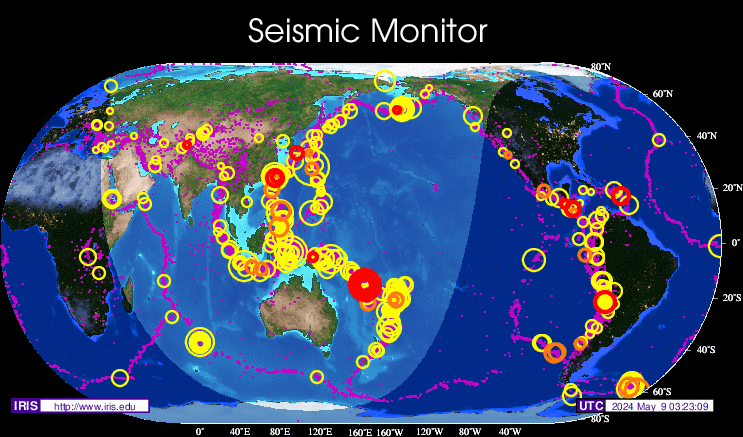Why this blog?
Until this moment I have been forced to listen while media and politicians alike have told me "what Canadians think". In all that time they never once asked.
This is just the voice of an ordinary Canadian yelling back at the radio -
"You don't speak for me."
email Kate
Goes to a private
mailserver in Europe.
I can't answer or use every tip, but all are appreciated!


Katewerk Art
Support SDA
Paypal:
Etransfers:
katewerk(at)sasktel.net
Not a registered charity.
I cannot issue tax receipts
Favourites/Resources
Instapundit
The Federalist
Powerline Blog
Babylon Bee
American Thinker
Legal Insurrection
Mark Steyn
American Greatness
Google Newspaper Archive
Pipeline Online
David Thompson
Podcasts
Steve Bannon's War Room
Scott Adams
Dark Horse
Michael Malice
Timcast
@Social
@Andy Ngo
@Cernovich
@Jack Posobeic
@IanMilesCheong
@AlinaChan
@YuriDeigin
@GlenGreenwald
@MattTaibbi
Support Our Advertisers

Sweetwater

Polar Bear Evolution

Email the Author

Pilgrim's Progress

How Not To Become A Millenial

Trump The Establishment
Wind Rain Temp

Seismic Map

What They Say About SDA
"Smalldeadanimals doesn't speak for the people of Saskatchewan" - Former Sask Premier Lorne Calvert
"I got so much traffic after your post my web host asked me to buy a larger traffic allowance." - Dr.Ross McKitrick
Holy hell, woman. When you send someone traffic, you send someone TRAFFIC.My hosting provider thought I was being DDoSed. - Sean McCormick
"The New York Times link to me yesterday [...] generated one-fifth of the traffic I normally get from a link from Small Dead Animals." - Kathy Shaidle
"You may be a nasty right winger, but you're not nasty all the time!" - Warren Kinsella
"Go back to collecting your welfare livelihood. - "Michael E. Zilkowsky
No, but this article is.
QED
I once worked at a pharmaceutical laboratory (in France). On day, one of the researchers came to me to ask it it was possible to write an editor for some data that he was working with.
I asked what sort of editing was needed. He explained that plotting his results, there was not a smooth curve as he expected, but there was a small spike on the graph. He wanted to edit the data to remove the entries causing the spike. I suggested that the correct way to deal with this was to add more data. Either the spike would flatten out and pretty much disappear if it was just a few erroneous values, or it would become more pronounced, in which case there was some effect that he really needed understand and document. He tried to argue, but I just replied that if he wanted a perfect graph he could tell me the shape of the curve he was looking for, and I could write a program for him to draw it. He went away. I strongly suspect that he found someone else to write his editor.
When I started graduate studies just over 40 years ago, I believed the common public portrayal of research and, for that matter, academics. I thought research was all about the pursuit of truth, knowledge, and, presumably, wisdom. One followed the results in whatever direction the data pointed.
Uh, no. What passes for research is largely an unending game of politics and oneupmanship. One’s performance is judged largely not on the quality of one’s findings or interpretation of the results but volume of publications. One cannot get a seat at the golden hog trough, otherwise known as tenure, unless one gives an indication of productivity. Rather than work on, say, one really good paper, one scores more points by writing several lesser, if not mediocre, publications to show how much one has “accomplished”.
Funding is granted in much the same way. One has to show that those funds are put to good use and that is indicated by how much one publishes.
Very few people, if any, actually read those publications. Certainly a lot of grad students do in order to learn the background of what they’re investigating or to support their results or conclusions. Some researchers in the field in question keep tabs on what other people are working on. That’s about it.
How closely those publications are read is debatable. I’ve heard stories about how certain academics reviewed papers they were given to examine and they didn’t spend a lot of time doing so.
One indication of that occurred nearly 40 years ago. A certain researcher, whose name I can’t remember right now, was found guilty of plagiarism. He filched data from other people’s papers and passed them off as his own. He eventually had a publication rate of something like 2 or 3 papers a week and, it seemed, few people caught on at first. Eventually, someone did, started asking questions, and the jig was up.
I don’t remember exactly what happened to that researcher, but I do recall that a number of his papers were withdrawn and he, I think, disappeared into obscurity.
When I was in University (30 years ago) one of my professors said that he put a $20 bill in his PhD paper. He went back to check periodically and it is was still there. No one ever read his paper.
It could be worse, it could be religion.
Modern science is a religion.
Another common mistake is the propagation of errors. One authority makes a profound statement (often just an opinion) and everyone quotes them. It then becomes a great truth, usually without any evidence at all of you back to the original source. A small example of this is the way pet owners or the aquatic salamander known as Axolotl (Ambystoma mexicanum) are told that they must never let their pets eat gravel lest they develop a gut impaction and die. There is absolutely no evidence of any kind for this. It’s just inherited truth. Yet if you say it, you get deluged with nasty messages by irate pet owners convinced they are right and convinced you are out to murder innocent axolotls. I wish I could say the gravel story is the only one I have found but it isn’t. I have found this misunderstanding of original sources over and over and over again in multiple fields, especially in textbooks. A good scientist always goes back and read the original literature.
The Fifth replacement monkey affect.
http://www.27bslash6.com/timesheets.html
Of course most of them are a fraud.
When you get paid to say certain things, you say certain things, just say what you are paid to say.
Don’t come up with the answers your funders want, your funding will disappear.
the most constant things in life are change , and bullshit
“Yet, in holding scientific research and discovery in respect, as we should, we must also be alert to the equal and opposite danger that public policy could itself become the captive of a scientific-technological elite.”
from 1961
YMMV
Having read millions of words regarding “climate change” science, I will say without equivocation that the “science” of computer models is indeed bogus, as they say garbage in garbage out.
Who needs science when we have Greta !!! ( sarcasm of course )